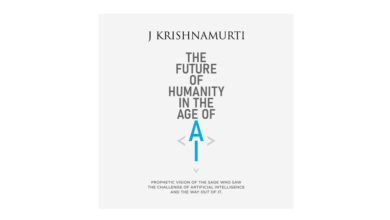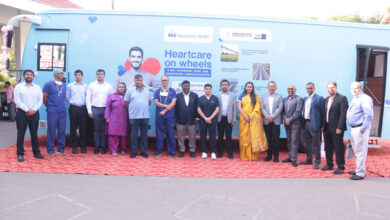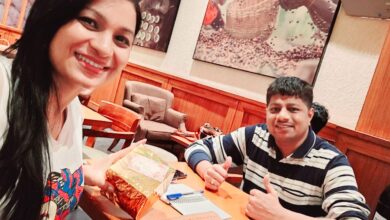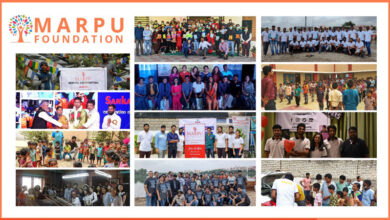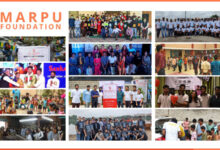Millennials from the Margins Making a Shift in Family Impact Lens
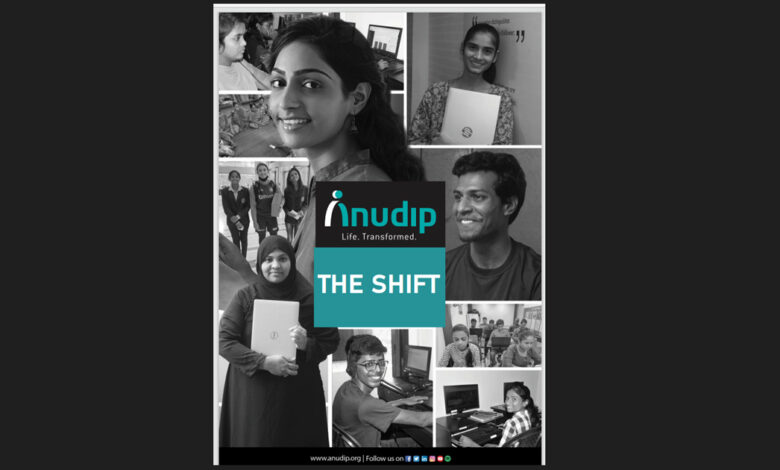
“Young people need to own their decisions regarding learning- what that will learn, how and when they will learn. When the learning is a choice made by them, they will unlearn and relearn quickly. Our alum of 150000+ youth from underserved communities is a living lab demonstrating how 21st century skills and new age learning can transform not just individuals, but also families and communities.”, notes Monisha Banerjee, Chief Executive Officer and Chief Mentor of the Human Transformation model at Anudip Foundation, a non-profit organization mainstreaming the marginalized since 2007 through technology, skills and decent employment.
Embracing technology in ways that elevate the role of faculty as mentors of innovative learning environments, each year ANUDIP observes 32,000+ remarkable stories of turnaround in the lives of the individuals they serve, transforming the millennial from the margins into a highly motivated workforce contributing to the new-age economy. Behind these numbers are heart-warming tales of some bright young minds who reflected a fundamental shift in their sense of responsibility and consciousness.
Asma M, 21 years-old, is a daughter of a tailor from an orthodox community in Chennai, Tamil Nadu. Staying in 300 square-foot home under a roof made of asbestos sheets, the 5 membered-family relied on Asma’s father’s nominal monthly income. Keen to bring home an income contrary to patriarchal structure in her community, Asma started the employability tech-training at ANUDIP. What she knew – was, “Poverty is more-welcome in my family but not a women going to work”.From trying to convince her parents to allow her earn to surprising them with an offer-letter from Capgemini, Asma became a leading contributor in the family. “No one in my family ever saw a fat monthly income together” grins the Senior Software Analyst of Capgemini, while taking charge of important responsibilities.
“My first priority was to build a pucca-house (a concrete settlement) with a proper toilet facility”, marks the concerned ANUDIP alumna, narrating “how small-huts neighborhoods with zero-hygienic lavatories often caused trouble for female residents living in close-knit crowd communities.”Contesting the stereotypes, Asma is paying an EMI for a loan she took for re-building her dream one-room home. “Here it is still a myth – of a girl to work, to earn, and take decisions” she smiles assuring how many frowns her family faced in the community on the construction of a pucca room and a toilet. Sabura Bibi, her mother realizes, “how my daughter made me understand the importance of utilization of finances.” Back in their slum, not just the daughter but the mother too is inspiring fellow-village women to rethink on proper sanitation, utility of income and significantly on how a girl can add value to the family as much as the male counterpart.
Asma’s story from Chennai has a striking similarity with Soni’s. This 22-year-old from one of the remotest corners of Jharkhand forced her mother to discontinue using the traditional clay-based chulha, emanating harmful smoke for cooking. Influenced by her digital literacy sessions at Anudip designed to improve remote women’s participation in every-day life through technology, she got trained in safe online-practices, available government schemes and e-banking practices. “Girls of my age in this small village knew using smart phones for browsing social media sites for fun but this training changed our perspective”, marks the young girl who has recently applied for the Pradhan Mantri Ujjwala Yojana Scheme online and availed the fee LPG Connection. “I am happy to bring this change in my kitchen” assures Soni’s mother Munni Devi who has others following the same transformation in their pantries. “They say it takes a village to raise a girl but now they claim that it takes a girl to raise a village”, laughs the ANUDIP alumna heartily patting her own back.
On the same thread, Riddhima from Gurugram after getting her first job at Bank of America post Anudip’s tech-training, decided to invest on educating her siblings. “Education has been always less-prioritized in our family but my job is a key enabler to shift their mind-shift”, iterates the young lady saving up to enroll his brother in a private engineering college. Again the crowded slums of Maharashtraechoes the same story when Anudip Alumna Neha Vishwakarma’s family got surprised with her newly purchased laptop after getting employed as an associate computer teacher at St. Arnold Junior College. Her 49-year-old father Rajkumar proudly states, “We could never afford an expensive gadget before but Neha changed the narrative.”
The picture is not very different in the north 24 paraganas of Bengal, when Bidya Devi, the 65-year-old mother of Anudip’s alumna Smita credits her daughter on “saving us from the taunts of the money-lenders by paying off the debts which the family failed to compensate.” The doting daughter claims, “My job at Netscribes is an answer to those who thought that a daughter cannot fix major financial crunches.”
Such stories of aspirational change from country’s hinterland is a hope that new-age education and decent employment opportunities if juxtaposed together will bring a broad spectrum of ways that youth from disadvantaged backgrounds can adopt, ranging from individual career growth, to a wide-angle view of sustainable family and community support. Click here to watch the family’s reaction of these youth.








